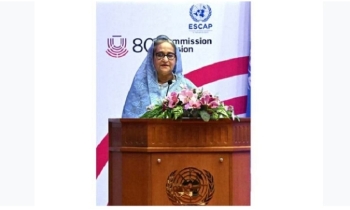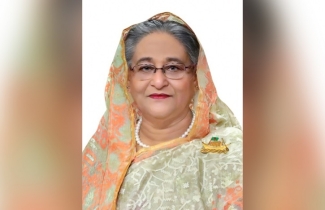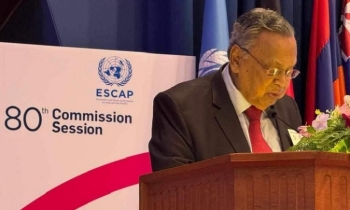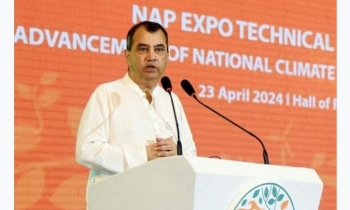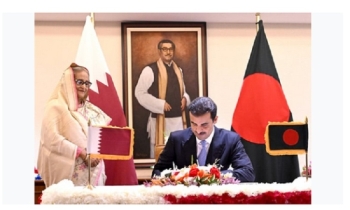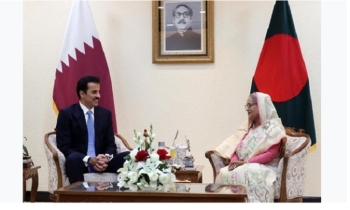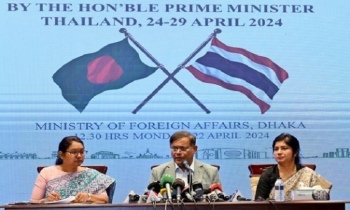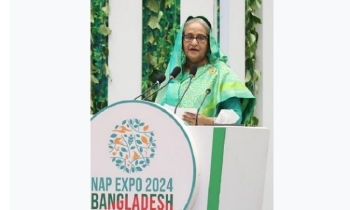Week in review: Bangladesh in world media
BI Report || BusinessInsider
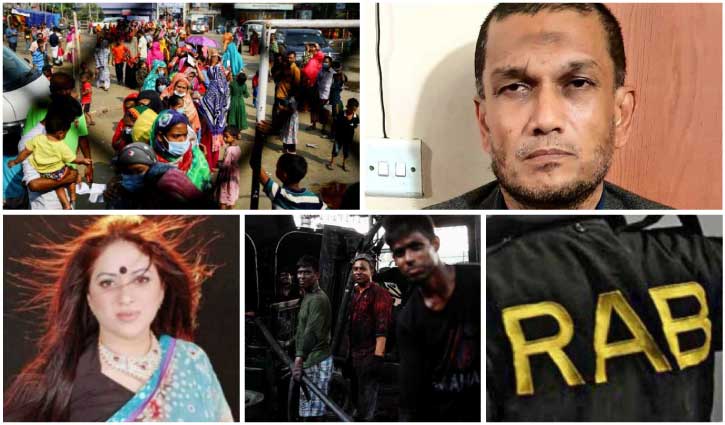
Photo: Collected
Bangladesh was featured on many news outlets in the third week of January (January 15 to 21). A group of human rights organisations writing to the United Nations to impose a ban on the country’s elite force, the Rapid Action Battalion, from its peacekeeping missions, made it to the headlines of many prominent news outlets. Also, the resurgence of the pandemic at an alarming rate was a much-reported topic of the week.
Here is a prick of five stories on Bangladesh that made headlines on international media:

Bangladesh tightens curbs as COVID cases rise, Dhaka a ‘red zone’
Bangladesh has enforced a new set of rules and guidelines to check a sharp rise in COVID-19 infections in the past week, reported Al Jazeera on January 15.
The Directorate General of Health Services (DGHS) has declared the capital, Dhaka, and the southeastern district of Rangamati “red zones” as the infection rate in these districts was reported to be between 10 percent and 19 percent.
Bangladesh, home to 180 million people, confirmed its first Omicron cases in the second week of December when two women cricketers returned from a series in Zimbabwe.
The minister warned that the situation could get worse and put a serious strain on the country’s healthcare system in the coming days. He urged people to wear masks outdoors, maintain physical distance, and get vaccinated as soon as possible.
A day after his warning, the government issued an 11-point directive, including mandatory COVID-19 passes and restrictions on events and transport facilities.
To enforce the rules, the government has set up mobile courts across Dhaka, though local media reports said the rules are not being strictly followed in the city.

Bangladesh arrests brother of Rohingya insurgency leader
AFP on January 16 reported that Bangladesh police arrested the brother of a notorious insurgent leader whose organisation has been blamed for murders and drug trafficking in sprawling Rohingya camps.
The Arakan Rohingya Salvation Army militant group has been accused of assassinating political opponents, running narcotics and instilling a climate of fear in the camps.
Mohammad Shah Ali, arrested late Saturday by the elite Armed Police Battalion, is the half-brother of ARSA's infamous leader Ataullah Abu Ammar Jununi.
He was caught in a camp near the coastal city of Cox's Bazar with "arms and drugs," the battalion said in a statement.

Body of missing Bangladeshi actress Raima Islam Shimu found in sack
The Gulf News on January 19 reported on the Bangladeshi actress Raima Islam Shimu, who was reported missing a few days ago, was found dead in the outskirts of Dhaka. Her body was found inside a sack near the Hazratpur Bridge in Keraniganj on Monday.
Shimu's relatives had filed a complaint at the Kalabagan Police Station on Sunday after she went missing.
After being informed by locals, a team of police from the Keraniganj Model Station recovered the body.
A top police official said the body has been sent to the Sir Salimullah Medical College Hospital (SSMCH) for autopsy, adding that an investigation is underway.
The 45-year-old actress made her debut with the film 'Bartaman' in 1998. She had since worked in as many as 25 films. She was an associate member of the Bangladesh Film Artistes Association.

Rights groups want UN to ban Bangladesh’s RAB from peacekeeping
Human rights organisations documenting abuses committed by the Bangladesh’s Rapid Action Battalion (RAB) have requested the United Nations to ban the unit’s members from its peace operations, reported Al Jazeera on January 20.
In a letter to Under-Secretary-General for Peace Operations Jean-Pierre Lacroix made public on Thursday, 12 human rights groups voiced concern “that individuals who have served with [RAB] are being sent on UN missions, despite consistent and credible evidence of abuses including extrajudicial killings, torture, and enforced disappearances by members of this unit since its creation in 2004″.
Kerry Kennedy, president of the Robert F Kennedy Human Rights organization, said “the evidence is clear; now it’s time for the UN to draw a line.”
Kennedy, whose organisation is one of the letter’s signatories, called on the world body to apply the 2012 United Nations Policy on Human Rights Screening of United Nations Personnel.
“If Secretary-General Guterres is serious about ending human rights abuses by UN peacekeepers, he will ensure that units with proven records of abuse like the Rapid Action Battalion are excluded from deployment,” she said in a statement.
The Department of Peacekeeping Operations has yet to provide a formal response to the letter which was sent on November 8.

Bangladesh rejects Malaysia labour proposal on 25 agents, 250 sub-agents
Malaysian news portal Malaysiakini reported that the government of Bangladesh has remained firm on its stand to reject Malaysia's request that only 25 Bangladesh Recruitment Agencies (BRAs) and 250 sub-agents be allowed to send their workers here.
Putrajaya's request and Dhaka's response were recorded in a recent correspondence between Human Resources Minister M Saravanan and Bangladesh's Expatriates’ Welfare and Overseas Employment Minister Imran Ahmad.
The letters sighted by Malaysiakini come after the two ministers signed a five-year Malaysia-Bangladesh labour recruitment agreement on Dec 19 last year.

